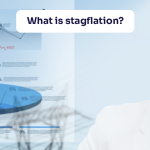Let us transport ourselves into the 90s to understand why GenZ will need to look at equity as an investment instrument over fixed income instruments.
The era of the 90s, the so called “period of liberalisation”, has seen one of the highest interest rates in the country. Returns on fixed deposits offered by companies was as high as 15% pa. There were dedicated brokers and sub-brokers who were only marketing fixed deposits of companies. In fact, a slew of premium companies (including Tatas and Birlas) would accept fixed deposits with interest rates in high double digits.
There was also a very active bill re-discounting market prevalent at that time, which provided HNIs a return of nearly 22-24% pa for 3-month periods. Bank FD rates for a 3-year deposit ranged around 10-13% pa. PPF interest rates were as high as 12% pa and that too tax-free.
At the same time, the equity and mutual fund culture had just begun and investing in these segments was not as hassle-free as it is today. There were only 16 mutual funds by 1995, which were operational. Dividends on shares were taxable in the hands of the investors and even capital gains were taxed in the hands of the investors.
Life Insurance policies were also very attractive with commensurately high returns and UTI had the US-64 scheme, which despite being a mutual fund had a regularly appreciating NAV and delivered a return of nearly 12-15% pa. At the same time, the equity markets were very shallow; the NSE had just started its operations. Shares were being transacted in the physical mode and transactions were opaque. Historically, equities have generated CAGR returns of 15% pa over a long term time horizon.
So, if an investor was getting a return of 12-15% pa by investing in an FD, why would he consider opting for a return of 15% pa in equity which came with risk?
This was one of the paramount reasons why investing in equity was limited to a small and accustomed clique but did not touch the lives of millions of other investors.
Circa 2000, we are now in a completely different environment wherein everything is loaded in favour of equity. There is a sea change in the manner in which investment in equity is being routed. Dividends are tax-free; capital gains tax is lower (was NIL till last year for Long term). Interest rates are down on fixed deposits to 8-9% pa. Bank FD rates are down to sub 7% pa levels. The number of companies allowed to raise deposits has also been clamped down due to better corporate governance. The US-64 scheme has been shut down. Mutual Funds, which had a negligible presence, are now a behemoth to reckon with. PPF interest rates are down from their peak of 12% pa to 8% pa, a drop of nearly 4%. That is nearly 33% from its peak.
What has changed is that the fixed income space returns have dropped to 8-9% pa and are taxed at the peak rate of 30% as compared to equity, where the tax rate is 10% for long-term. The returns on equity remain in the band of 15-17% pa over the long tenure.
Thus what has changed is that the risk-reward ratio is now tilting towards equity-oriented products. Moreover, the risk of forged certificates or bad deliveries of shares has been completely obviated.
Many older generation investors, who have burnt their fingers in the equity markets of the 90s and have earned well from fixed income instruments, tend to pass on the same concerns to their children who would now be in their 20s. As a result, gen-next may also think that the equity markets are avoidable, based on their parents’ experience. But as explained above, there has been a sea change. Risks associated with investments have changed since the 90s. There is more transparency among corporates, who take governance way more seriously. More information is now publicly available. Visit our website www.ventura1.com for more information on equity and mutual funds to make well informed investment decisions that enable you to create long term wealth.
Disclaimer: Ventura Securities Ltd has taken due care and caution in compilation of data for its web blog. Information has been obtained from different sources which it considers reliable. However, Ventura Securities Ltd does not guarantee the accuracy, adequacy or completeness of any information and is not responsible for any errors or omissions or for the results obtained from the use of such information. Ventura Securities Ltd especially states that it has no financial liability whatsoever to any user on account of the use of information provided on its web blog. The information provided herein is just for the knowledge purpose and shouldn’t be construed as investment advice under any circumstances.

What is price to book ratio & how it helps you select equity stocks
4 min Read Sep 12, 2023
Bull markets or bear markets? We don’t care markets
4 min Read May 26, 2022
Has the Manike Mage Hithe moment of Indian stock markets arrived?
4 min Read Oct 11, 2021
Making sense of market madness
4 min Read Jun 10, 2021
Are you a long term investor? Don’t get scared by the inflation scare!
6 min Read Mar 17, 2021
Revisiting the Gold-Silver Ratio Amid Silver's Outperformance
3 min Read Dec 22, 2025
Midcaps: Sweet Spot or Danger Zone? | What HSBC MF’s Cheenu Gupta Thinks | Ventura Spotlight
3 min Read Dec 17, 2025
Understanding Option Pin risk near expiry
3 min Read Dec 12, 2025
EPS in the Stock Market
3 min Read Dec 12, 2025
What is stagflation?
3 min Read Dec 10, 2025
Post your comment
You must be logged in to post a comment.